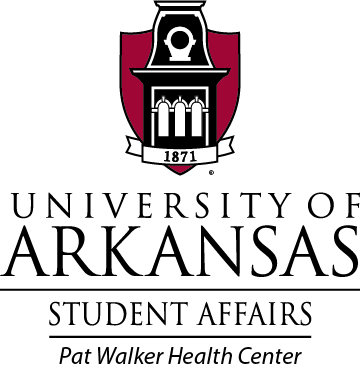As a member of the University of Arkansas community, the Pat Walker Health Center wants you to be informed about the Ebola virus, what the university is doing and what you can do to stay well.
What the university is doing
The Pat Walker Health Center has been collaborating with the Arkansas Department of Health since June to monitor the virus outbreak and receive guidelines for Ebola. The health center, the international education office and emergency management have all coordinated efforts to keep the university prepared.
Since August, the health center has been following protocol from the Centers for Disease Control and Prevention concerning students and faculty arriving on campus from the affected countries. The health center and the international education offices have worked together to identify any students arriving from one of the affected areas.
The health center continues to ask that any members of the university community who have traveled to these areas within the past 21 days contact the health center. Additionally, the health center is screening all patients for recent international travel when they present to the facility.
The Pat Walker Health Center closely monitors developments on the outbreak and receives regular updates from the Arkansas Department of Health. The health center has health and safety protocols in place and maintains working relationships with appropriate government agencies to remain prepared for any communicable disease or other health issues.
Facts about Ebola
- Ebola is not airborne. You cannot contract it from geographic proximity alone, nor through water or food.
- Ebola is spread when a healthy person comes into contact with body fluids of an infected person. Healthcare providers caring for Ebola patients and the family and friends in close contact with Ebola patients are at the highest risk of getting sick because they may come in contact with infected body fluids of sick patients.
- Affected countries with an outbreak of the virus are Guinea, Liberia and Sierra Leone. The United States is not considered an affected country.
- There is no Ebola vaccine. There are vaccines being tested right now to help fight the virus, but there is no vaccine available to the public for Ebola.
- A test for Ebola is only useful if a person has been having symptoms of Ebola for several days and has come into contact with an infected person. Testing is done after consulting with the Arkansas Department of Health and the CDC. The test is not done in Arkansas.
- There have been no cases or suspected cases of Ebola in Arkansas.
What you can do
Being aware of how the disease is spread and what countries are affected is key. If you would like to educate yourself further, the CDC provides timely updates regarding Ebola on their website at cdc.gov/vhf/ebola. The Pat Walker Health Center will continue to monitor the Ebola disease outbreak and share updates via Arkansas Newswire.
More importantly, the health center encourages you to stay well and practice good respiratory hygiene. Flu season is here and it is estimated that between 5 to 20 percent of U.S. residents get the flu and more than 200,000 people are hospitalized for flu-related complications each year.
Flu vaccines are available in the health center from 3-5 p.m. each weekday for students, faculty and staff. Most health insurance plans cover the cost of the flu vaccine, including UMR and the student health insurance plan by Academic HealthPlans.
During flu season, students, faculty and staff who have the flu are advised to avoid social gatherings and large groups (i.e. class, work, social events) until they are fever free for 24 hours WITHOUT medication. Respiratory hygiene includes coughing into your elbow, not your hands; avoid touching your eyes, nose and mouth; and washing hands frequently. Washing your hands is one of the easiest and most cost-effective ways to help prevent the spread of germs.
Contacts
Casey Maute, assistant director for communications
Pat Walker Health Center
405-575-4649,
